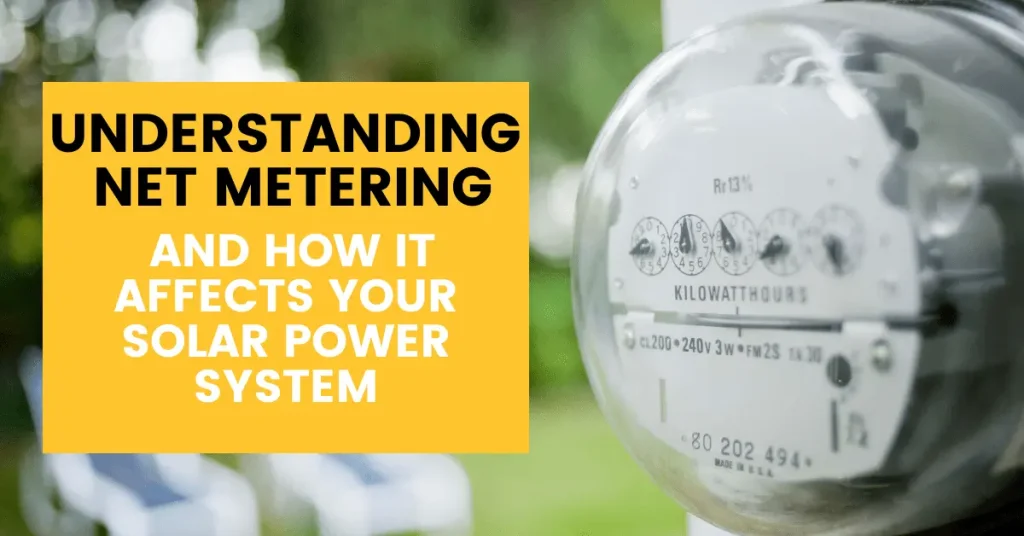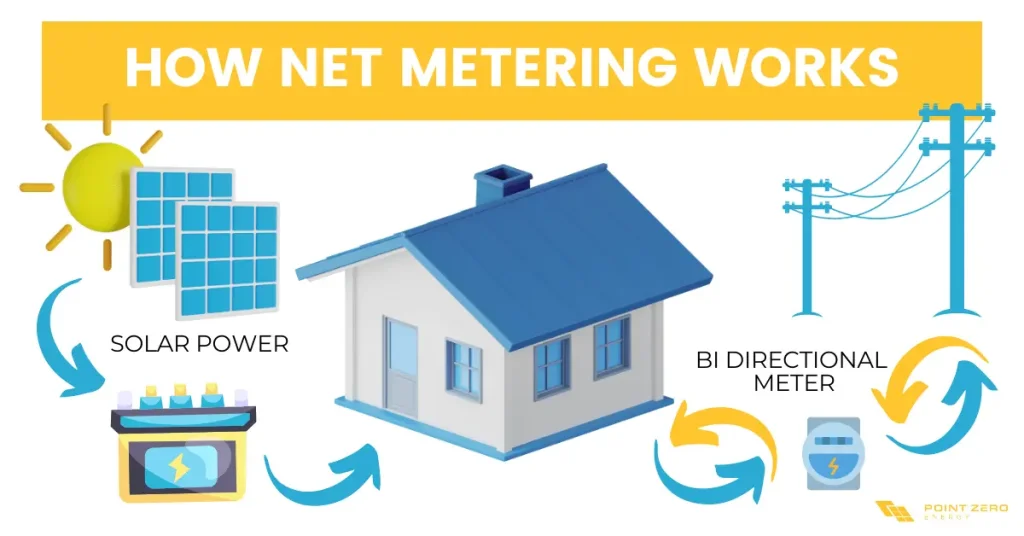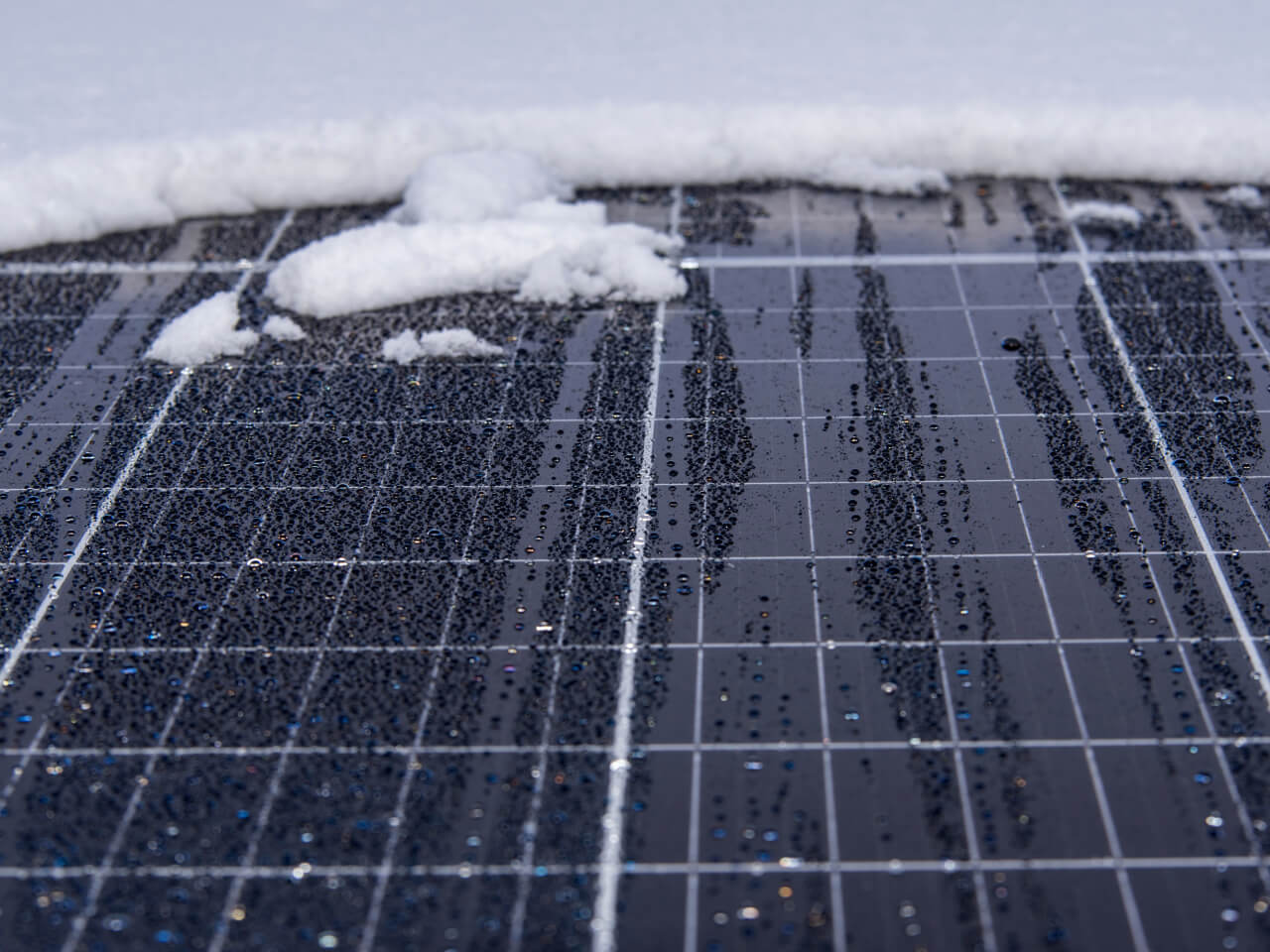If you’re considering making the switch to solar power, it’s important to have an understanding of net metering and how it can benefit your solar panel system. Net metering, also known as net energy metering (NEM), is a billing and metering arrangement that compensates owners of distributed energy generation (DG) systems for the excess energy they export to the utility grid. In other words, when your solar panels produce more energy than you’re using, the excess energy is sent back to the grid and credited back to you.
This is where net metering comes in. On a cloudy or rainy day when your solar panels aren’t producing enough energy, the utility grid will feed your home energy, and count that energy against the credits you’ve banked over time. As a solar customer, you will only be billed for your “net” energy usage. This means you’re only paying for the electricity you’ve used beyond what your solar panels generated.
It’s important to note that each state has its own set of rules and regulations, so it’s crucial to familiarize yourself with them.

Net metering is a billing mechanism that allows homeowners with solar panels to receive credits for the excess electricity their solar panels produce. When your photovoltaic system produces more electricity than you’re using at any point during the day, the excess electricity flows back to the grid. This is made possible through a bi-directional meter that can measure the flow of electricity both ways.
When your solar panels are producing more electricity than you’re using, the bi-directional meter will run in reverse. This means that instead of measuring the amount of electricity you’re using from the grid, it will measure the amount of excess electricity that your solar panels are sending back to the grid. These excess units of electricity are credited to your account and can be used at a later time when your solar panels aren’t producing enough electricity to meet your needs. This is how net metering helps you to maximize the value of your solar energy system.
On the other hand, when your energy use is higher than your solar panel production, either at night or on cloudy days, you’ll pull electricity back from the grid, running your meter forwards. In this case, you’ll be using electricity from the grid to meet your energy needs, and the amount of electricity you use will be measured by your bi-directional meter in the normal forward direction.
At the end of the month or year, your utility company will bill you for the net amount of what you send to the grid and what you pull from the grid. If you produce more electricity than you use, you’ll receive a credit for the excess energy that you can use in the future. If you use more electricity than you produce, you’ll be billed for the additional energy you consumed. This billing mechanism ensures that you’re only billed for the net amount of electricity you use from the grid, hence the term “net metering.”
To ensure a clear understanding of the relationship and processes between your solar power and electric company, it is important to contact your local utility company if you have any questions.

Net metering is the best solar policy because it allows you to store every unit of energy you produce with solar to be used at a later date from the grid. In fact, thanks to net metering, you can save tens of thousands of dollars over the lifetime of your solar panel system by offsetting your need for electricity from the grid.
While net metering is not the only way that utilities compensate homeowners for going solar, it’s by far the most common and effective solar policy at the moment. Check out your state’s net metering policy to see how it can benefit you.
Understanding net metering can also help you choose the right solar panel system for your needs. By working with a reputable solar provider like Point Zero Energy, you can ensure that your system is correctly sized for your home’s electricity use. With a correctly sized solar energy system, you can produce enough electricity to match your home’s electricity use for the entire year. However, the amount of electricity your solar panels produce will vary throughout the year: more in sunnier summer months, and less when the sun is lower in the sky and sets earlier in the winter. Net metering helps you to account for these seasonal differences in solar production by crediting you for the excess electricity your panels produce so that you can use it at a later date.
The benefits of net energy metering (NEM) are many, making it a popular choice for customers who have installed distributed energy generation (DG) systems such as solar panels. Here are some of the key benefits:

Net metering is a vital part of the solar industry and can help you save money on your electricity bills by offsetting your need for grid electricity. By choosing a reliable solar panel provider like Point Zero Energy and understanding how net metering works, you can ensure that your solar panel system is optimized for your home’s energy needs.

